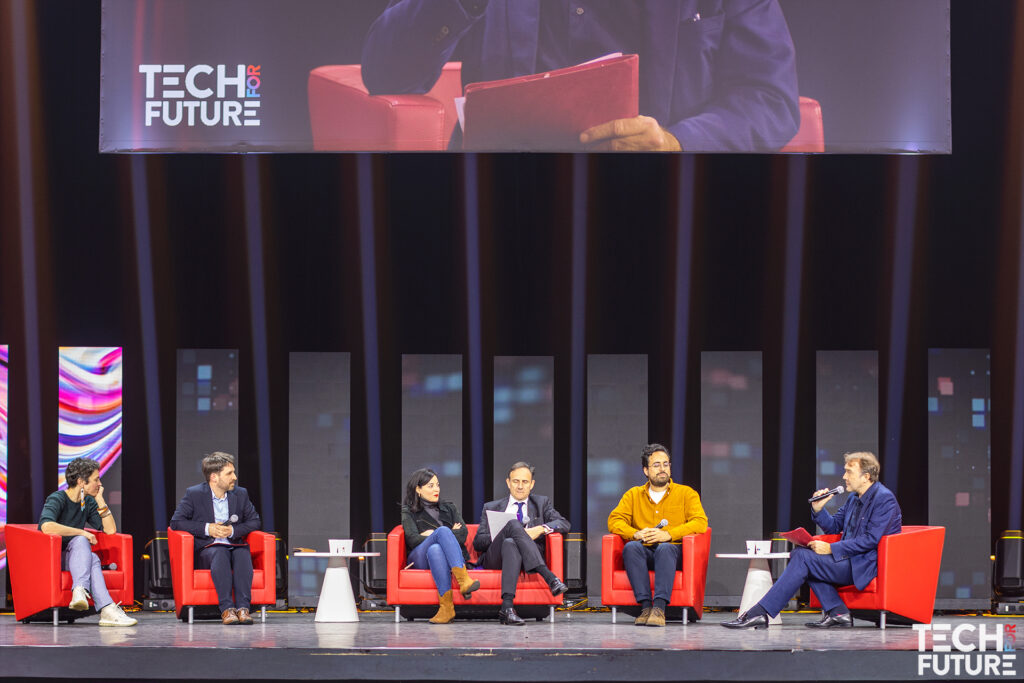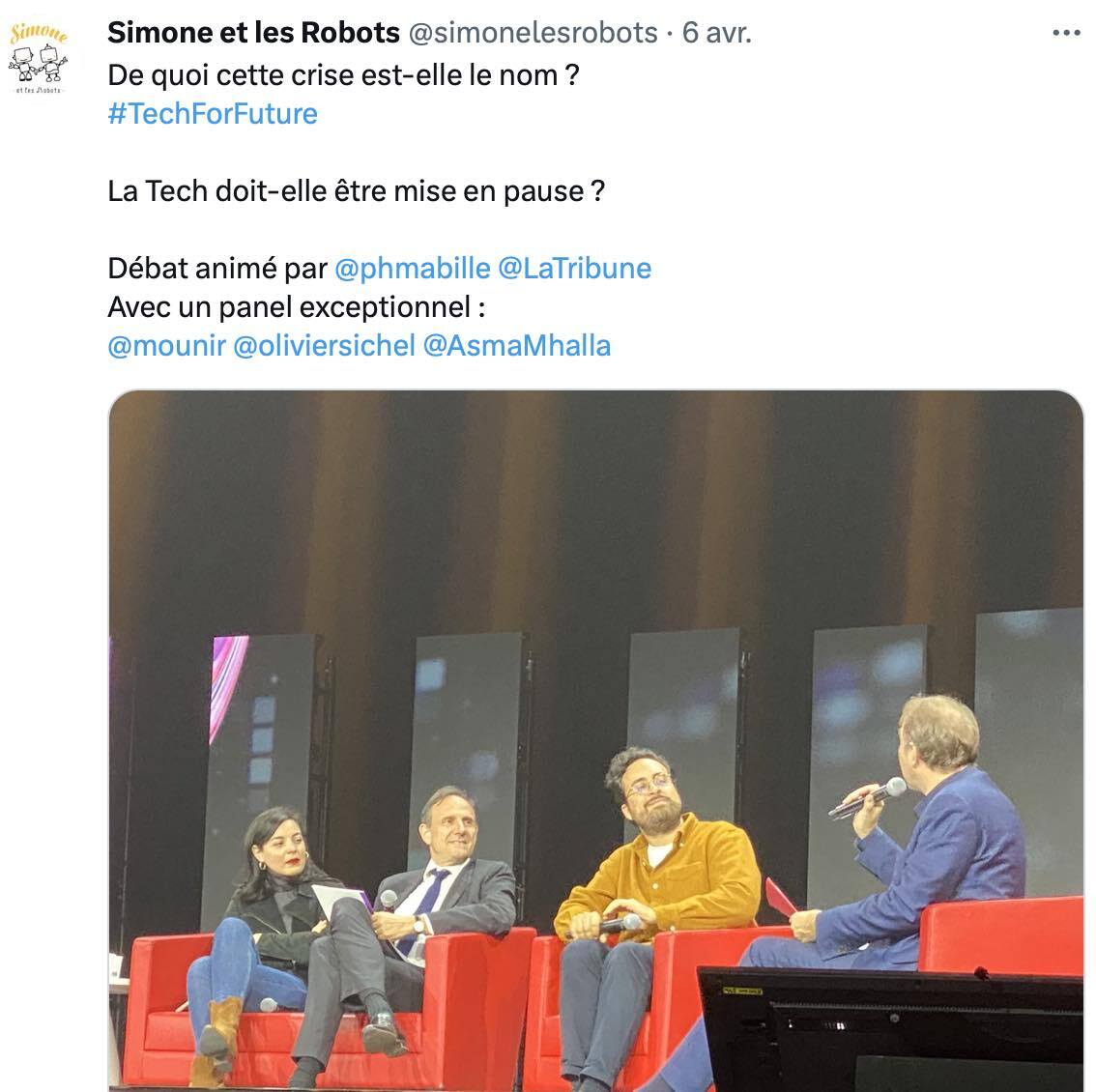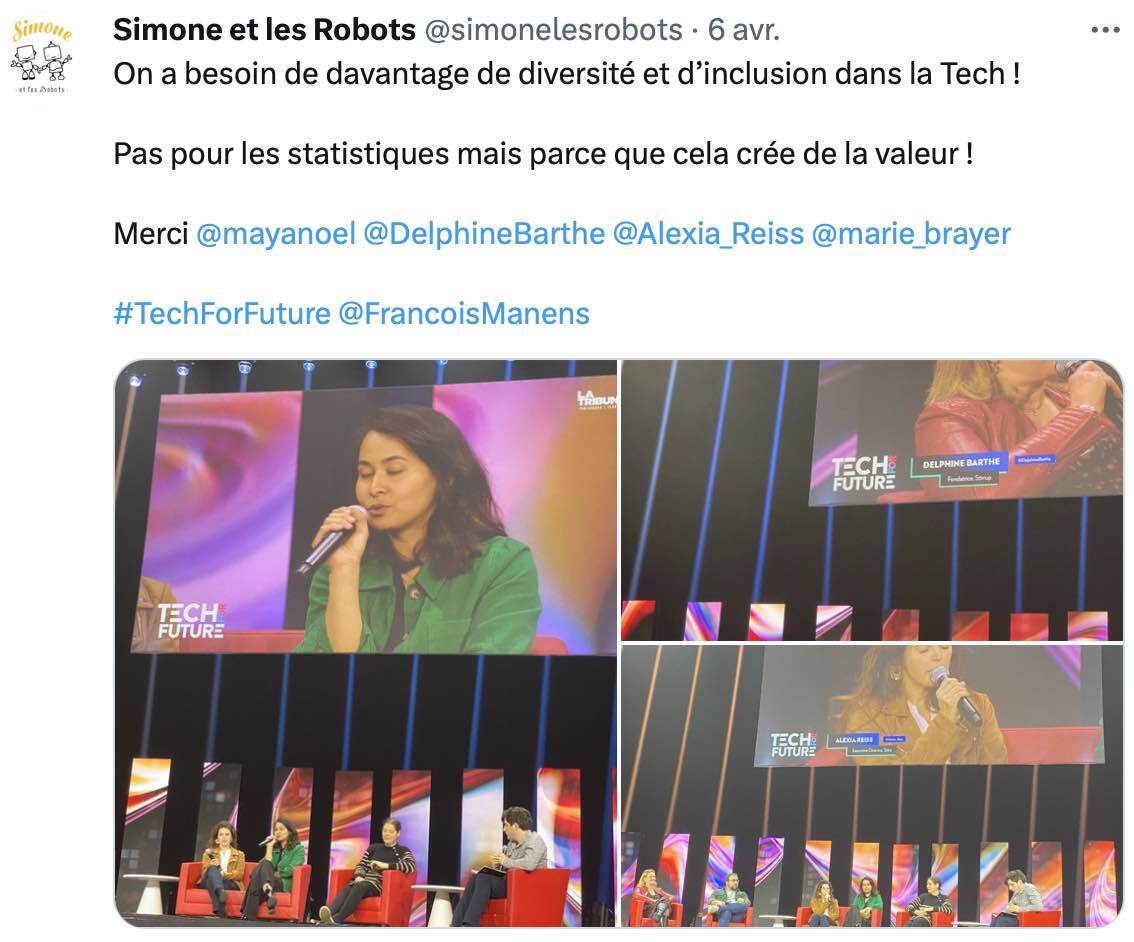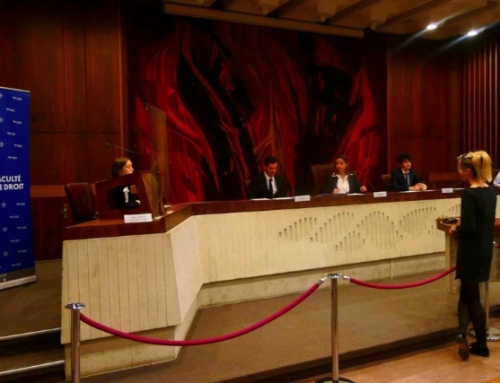Organized on April 6 by La Tribune, Tech for Future was an exciting event, punctuated by a series of conferences and concluded by the presentation of awards to 10 finely selected start-ups. Numerous debates took place in front of an attentive audience. The major issues discussed, from sovereignty and financing to inclusion and climate protection, made it clear that Tech is everywhere, and that it is certainly saving lives.
To launch the day, Minister Delegate for the Digital Transition Jean-Noël Barrot recalled the importance of both the French success stories born of the first wave of digital companies such as Deezer, Blablacar, Doctolib, or BackMarket, but also the strong commitment of the President of the Republic, Emmanuel Macron, to strong support for French Deep Tech in the months and years to come. A plan initiated in 2019 with the support of the BPI and which provides for the creation of 500 new Deep Tech companies a year, while Scale-Up Europe launched by France in 2021 is a program aimed at bringing European technology leaders to the fore. In fact, some of our companies have raised significant amounts of capital, such as Ledger, which specializes in securing cryptocurrencies, and Pasqal, which develops quantum computers, each with €100 million,” says the Minister.
In the face of fears of a financing slump in the wake of the SVB affair and a 70% drop in amounts raised in the first quarter, Jean-Noël Barrot is positive and resolutely confident of a future rebound. The minister reassures us that it is also to “cushion” any dips that support plans are put in place.
But hasn’t Tech retreated into the shadow of Artificial Intelligence?
Before talking about a possible pause in research or even an AI crisis, it was important to remember that governments can and must encourage and highlight the ethical and humane uses of technological advances. So, for example, when AI makes it possible to save thousands of years of research to model some 200 million proteins, we understand that the benefits for human health can be enormous. Yet these advances are being made with AI models very similar to those used by OpenAI for ChatGPT. It’s not a question of denying the risks associated with the technology, it’s a question of being a player in AI research, as enabled by the AI strategy launched in 2021, with over a billion euros invested by the State.
Le ministre comme d’autres intervenants, le souligneront, nous avons d’excellents chercheurs et spécialistes de l’IA en France. Nous avons donc une carte à jouer dans cette course à l’innovation. Il est bon de rappeler qu’il y a et qu’il y aura des domaines interdits ou réglementés et surveillés pour l’usage de l’intelligence artificielle. Il ne s’agit ni d’interdire, ni de souscrire à un moratoire au développement des modèles d’intelligence artificielle. La CNIL peut en revanche contraindre OpenAI à respecter le RGPD, et notamment dans les données utilisées pour « entrainer » les modèles. Les données sont-elles suffisamment protégées comme le souhaite l’Europe ?
Watch Jean-Noël Barrot’s speech :
What emerged from the debates that followed this very official speech is undoubtedly that we are in the process of “moving from an economy of attention to an economy of intention”, as Marie Ekeland, founder of 2050, aptly put it. Addressing tech issues from a political angle means both asking the question of data sovereignty, and making it clear to audiences that there are decisions to be made together: what we want to do with Artificial Intelligence, to summarize the remarks of Asma Mhalla, Senior Lecturer at Columbia, Sciences Po and Polytechnique and Mounir Mahjoubi, former Secretary of State for Digital and now entrepreneur.
It’s clear, then, that the “monitoring” of intention must take precedence over the strong attraction that excites crowds and the media with every technological leap. For it is first and foremost the desire and need for sustainable transformation that must motivate the adoption of technology. The sensational collapse of the SVB bank shows the extent to which reactions and changes in behavior are much more vivid and instantaneous than ever before. As a result, we need to take a political view of the use of AI, while ensuring that it is as accessible to all as possible. Rather than giving in to the injunction to pause for regulation, suggested in particular by Elon Musk, it would be more important to win some upcoming battles, building on our strengths and our political vision, as Mounir Mahjoubi, and Olivier SICHEL, Director of Banque des Territoires, remind us.
Nevertheless, the attention economy is very much present, and it is primarily the content distributed to us by American or Chinese platforms that raises the question of audience alienation. In these cases, the intention is highly questionable. How can we manage to extricate ourselves from this enormous stranglehold that manipulates populations and sucks up their personal data to feed Artificial Intelligence models? Can we accept that technology, that machines, do everything for us, including deciding what we should read, learn and know? When the Americans propose a vision of a smart city for an African country, it provokes a reaction from the inhabitants, who absolutely do not want to become stupid users subjected to the dictates of technology. And this is just one example among many, which clearly demonstrates the need for meaning and intention to prevail over the deployment of technology.
This debate on intention was echoed in the day’s other presentations, from Sylvie Jehanno, CEO of Dalkia, who came to talk about decarbonization, to Jean-Marie Messier, who evoked the paradox of the ultimate laziness that the use of ChatGPT can engender at the risk of losing the sense of learning, and Gilles Babinet, who invoked Schumpeter to remind us that every economic transition results in massive job destruction before being an opportunity for renewal.
There was an emotional mix in the room, shifting from gloom to light as each speaker made his or her point. Yet the idea of this day is to highlight and congratulate the hopeful initiatives of France’s new Tech companies. Are we to understand that their positive intentions are our only way out of the crises and chaos we’ve been experiencing for the past three years? Is it reassuring to note that during these difficult times, brilliant minds continue to create, innovate and imagine a sustainable and responsible future ?
That’s for sure ! Seeing the best candidates chosen from hundreds of remarkable projects on stage is invigorating. It’s a show that puts real entrepreneurs in the spotlight. Those who dare to imagine other solutions, from the energy born of the encounter between the salt water of the oceans and the fresh water of rivers, to new tools to enable children suffering from disorders such as dyslexia or autism, for example, to follow a normal learning path, and why not the utopia turned reality of a fully automated dairy processing plant, installed directly on the farm. Energy, health, education, food and the local economy: these projects cover all our most basic needs and can have a major impact on our lives, while respecting the planet.
Find out more about the Tech for Future awards here :
You’ll discover both the 10 winners and the many nominees for this 2023 edition.
Want to discover a new article every month? All you have to do is subscribe to our newsletter, which will bring you Des Nouvelles de Simone !








